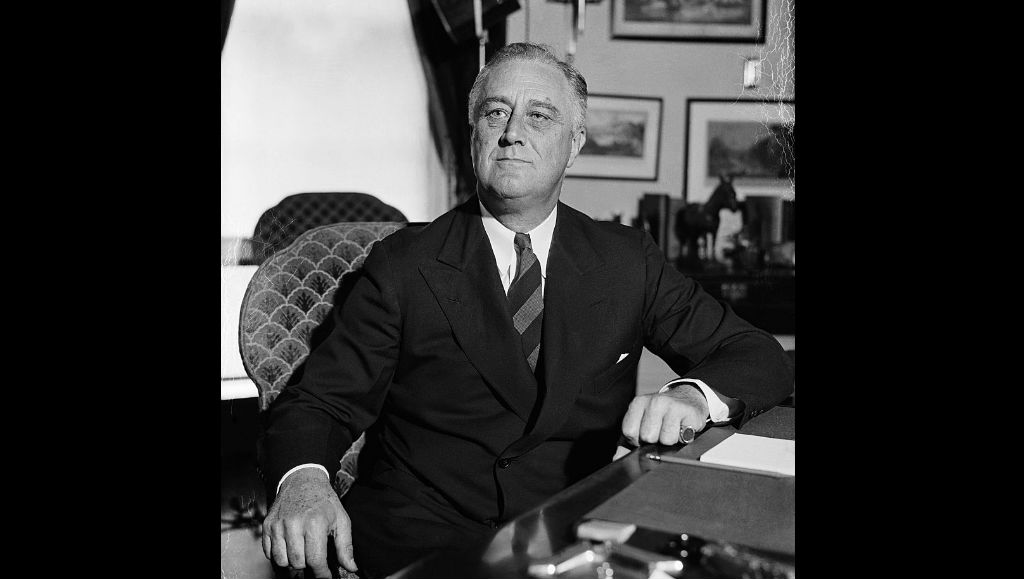Is Trump's prescription drug cocktail safe?
4:10
(CNN) -
As President Donald Trump returns to the White House after days of experimental COVID-19 treatments at Walter Reed National Military Medical Center, the country remains puzzled: How sick is the president of the United States?
Trump's doctors have been reluctant to reveal too many details of his illness, even allowing him to return to the White House despite saying that "he may not yet be completely out of the woods."
At 74, Trump's age puts him in one of the highest risk groups for serious, even fatal, complications from Covid-19.
Obesity and high cholesterol, for which you take a statin, also increase your risk.
It is also well known that the president has a preference for fast food and does little exercise outside of an occasional round of golf.
The public health lesson of President Donald Trump and the first lady's covid-19 diagnosis
The drugs Trump is receiving 1:47
Many people with COVID-19 who initially appeared to be recovering have suddenly worsened, requiring hospitalization and the use of respirators.
Trump's doctors will be on the lookout for pneumonia, blood clots, bacterial infections, a sudden drop in oxygen levels, and other known complications from Covid-19 over the next few days or weeks.
A public skeptical of Trump's health
Trump has made it clear that he does not want the country to see him weak or fragile before the November presidential election.
This despite having a deadly disease that has killed more than a million people worldwide, so far, including more than 210,000 Americans.
Now I'm better and maybe I'm immune?
I do not know.
But don't let that rule your lives, "Trump said in a video recorded upon his return to the White House.
A new CNN poll, conducted while Trump was in the hospital found that 69% of Americans said they had little confidence in what they heard from the White House about the president's health.
Only 12% said they trusted almost everything they heard.
Given the history of efforts to conceal presidential health fears from the public, the skepticism is not surprising.
"Presidents have always been concerned about showing poor health," CNN presidential historian Douglas Brinkley told CNN's Don Lemon on Friday night.
Woodrow Wilson had a stroke, they covered it up.
Franklin Delano Roosevelt covered a lot of health stuff, ”Brinkley said.
But Americans today have made it clear that they want to know the truth about the health of their commander-in-chief, he added.
"Since the 1980s, we've been very vigilant about medical records, they tell us what's going on, we demand to know, no more Woodrow Wilson-era cover-ups are allowed," Brinkley said.
"We, as a public, are demanding more."
Historical cover-ups of the health of presidents
History reveals a staggering list of hidden truths when it comes to the health of American presidents.
Grover cleveland
One of the more unusual was Grover Cleveland's 1893 cover-up of his oral cancer surgery.
He smuggled a surgeon and his team onto a friend's yacht to remove a tumor from the palate.
Cleveland came off his "fishing trip" a week later.
For almost a quarter of a century, no one knew what had happened.
Woodrow wilson
Woodrow Wilson.
Wilson had suffered several strokes while serving as president of Princeton University, years before running for president of the United States, said Dr. Jerrold Post, co-author of "When Illness Strikes the Leader," in a previous interview with CNN. .
Wilson, who was elected in 1913, never disclosed his medical history to voters, said Post, who is also an emeritus professor of psychiatry, political psychology and international affairs at George Washington University.
In 1919, while campaigning for the Treaty of Versailles, Wilson "had a massive stroke, but they hid it and just said he was sick and no one was informed," Post said.
So we already had the first female president, his wife Edith.
In fact, she is reported to have said, 'I don't know why you men make such a fuss, I had no trouble running the country while Woody was sick.'
Wilson, as Trump has done, also downplayed a pandemic, the highly infectious and deadly flu of 1918, which spread among American troops during World War I and across the United States, killing 675,000 Americans and dozens of millions around the world.
And Wilson, also like Trump, contracted the virus.
Despite a severe cough and hallucinations, Wilson managed to hide his illness from the public.
Wilson never made a public statement about the pandemic.
Never, "said John M. Barry, author of" The Great Influenza: The Story of the Deadliest Pandemic in History, "in a previous interview with CNN.
“To keep morale high during the war, the government lied.
National public health leaders said things like, 'This is the common flu by another name.'
They tried to minimize it.
As a result, more people died than would have died before, ”Barry said.
Franklin Delano Roosevelt
Franklin D. Roosevelt (1933-1945) - The 32nd president of the United States assumed the presidency in one of the most turbulent times in the country's history, as he faced several historical events such as the Great Depression, World War II and the attack from Japan to Pearl Harbor, among others. He has been the only president to be elected for four consecutive terms (1932, 1936, 1940 and 1944). He suffered from partial paralysis in the body due to polio that struck him when he was 39 years old. In 1945 he died due to a cerebral hemorrhage. (Credit: Getty Images)
While the public knew Franklin Delano Roosevelt (FDR) used a wheelchair due to polio when he ran for president for the fourth time in 1944, they were unaware that he had advanced heart disease and hypertension, said George Annas, president of the Department of Health, Law, Bioethics and Human Rights at the Boston University School of Public Health.
Those conditions may have contributed to the brain hemorrhage that killed him months after reaching his last term, Annas said.
"The idea of a president dying in office from an illness he knew he had before running for election or reelection does not sit well with most people," Annas said in a previous interview with CNN.
Dwight D. Eisenhower
Dwight D. Eisenhower (1953-1961) - The 34th president of the United States had great prestige for having been commanding general of American forces in World War II, according to the White House page. During his tenure he managed to end the Korean War and during his two terms worked to ease the tensions of the Cold War. (Credit: Underwood Archives / Getty Images)
In September 1955, Eisenhower was misdiagnosed with a gastrointestinal problem before doctors discovered that he had actually had a heart attack.
Despite spending weeks in the hospital, White House staff initially downplayed the severity of the heart attack to the public.
Fighting claims that he would not be fit to serve another term, Eisenhower won reelection in 1956, underwent surgery for Crohn's disease later that year, and suffered a stroke in 1957, which was reported in the press.
John F. Kennedy
John F. Kennedy: What health problems did he suffer from?
0:58
At 43, JFK was the youngest man to become president.
He was seen as healthy and vibrant during his campaign, but in reality, he took office suffering from hypothyroidism, back pain and Addison's disease and was taking a daily dose of steroids and a number of other drugs.
"Addison's disease affects your cortisol levels, your ability to handle stress," said Dr. Connie Mariano, who served as a White House physician for Presidents George W. Bush and Bill Clinton, in a previous interview. with CNN.
"You wonder, was the Bay of Pigs episode a problem because he didn't receive the proper treatment for Addison's disease?"
Kennedy also suffered from lifelong back pain and underwent numerous back surgeries during his rise to the Presidency.
To cope, he wore a well-tied back brace.
A 2017 study of historical documents found that the brace may have contributed to Kennedy's death that fateful day in Dallas in 1963. The rigid brace may have prevented him from falling to the floor of his car after the first bullet in the car. neck, which left him ready for the fatal shot.
"I was surprised by Kennedy's pain threshold," said neurosurgeon Dr. Justin Dowdy, a co-author of the study, in a previous interview with CNN.
"How long did you deal with the pain despite your short life? How did it affect your life, and how were you able to hide most of it from the public and certainly your political adversaries?" Dowdy said.
A back problem may have contributed to the death of John F. Kennedy
Ronald Reagan
In this file photo from February 26, 1980, Republican presidential candidate Ronald Reagan and his wife Nancy campaign last minute in Manchester for the New Hampshire presidential primary.
Reagan was diagnosed with Alzheimer's after his presidency.
Whether it affected your ability to function while in office is up for debate.
Today, however, medical science knows that Alzheimer's begins in the brain 20 to 30 years before symptoms begin.
Can you trust a politician's doctor to detect these kinds of problems?
Some diseases are only known by the symptoms that the patient complains about, "Post said.
"The weakening of mental processes, which begin in the early years of Alzheimer's disease, for example, can only appear if the politician complains about it."
Mental diseases?
George McGovern's vice presidential candidate, Thomas Eagleton, had to drop out of the 1972 presidential race when news leaked that he had undergone
electroshock
therapy
for clinical depression in the 1960s. Critics questioned his ability to rule if he suffered a recurrence of depression.
However, he applied the current diagnostic criteria to the historical records of the first 37 presidents between 1776 and 1974 and found that 18 of them met the criteria for psychiatric disorders, primarily depression, anxiety, bipolar disorder, or alcohol abuse and dependence.
In fact, the researchers said, 10 of the 18 presidents exhibited enough symptoms of mental illness while in office to have affected their ability to lead the nation.
Doctor admits that it was Trump himself who wrote his certificate of perfect health
A common theme for Trump
This is not the first time that Trump has sidestepped questions about his health.
While running for president, in 2015, he dictated an enthusiastic letter about his physical prowess to his personal physician at the time, Dr. Harold Bornstein.
The letter, which was published as a medical evaluation of Trump's health, said that his "physical strength and endurance are extraordinary."
"If you are elected, Mr. Trump, I can affirm unequivocally, you will be the healthiest person ever elected to the Presidency," read the letter signed by Bornstein.
But years later, the doctor said that “he dictated the whole letter.
I didn't write that letter, ”Bornstein told CNN more than two years later.
"I made it up on the fly."
Updates on Trump's health have been spotty while he's been in office, including the results of annual physical exams leave questions unanswered, including details about Trump's unannounced visit to Walter Reed National Military Medical Center, the year. past.
CNN's chief medical correspondent, Dr. Sanjay Gupta, wrote at the time: "As a physician and reporter who has covered four administrations, none of this adds up and raises the question: What do we really know about President Trump's health?" .
- CNN's Jennifer Agiesta, Faith Karimi and Caroline Kelly contributed to this report.
Health Donald Trump









